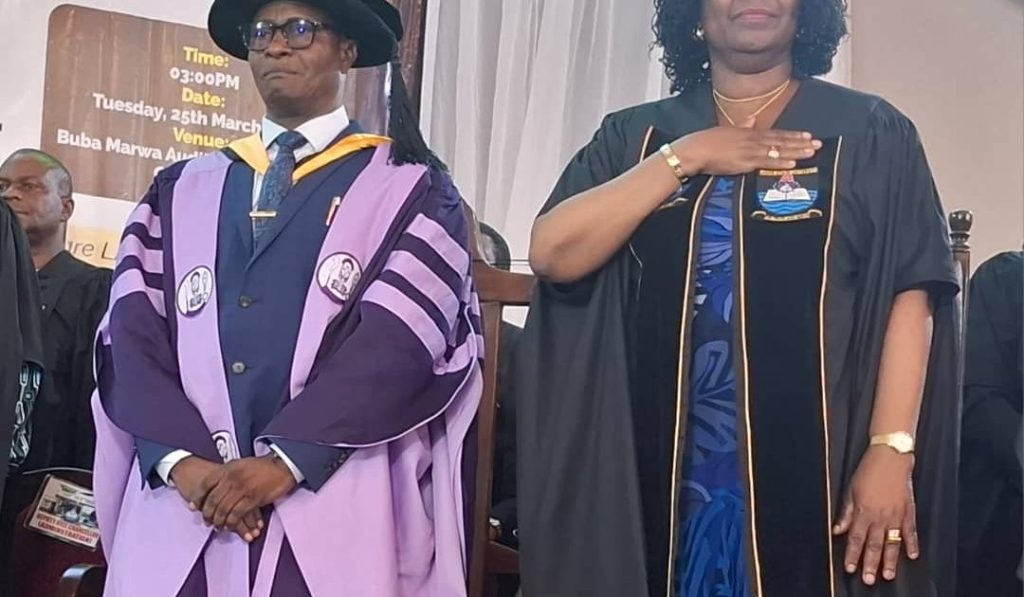The Imperative of Political Will in Combating Nigeria’s Wicked Problems
Professor Olufemi Fatile, a distinguished public administration scholar at Lagos State University, delivered a compelling inaugural lecture that dissected the persistent challenges of corruption, insecurity, and terrorism plaguing Nigeria. He argued that while these issues are complex and deeply entrenched, they are not insurmountable. The key, according to Professor Fatile, lies in summoning the requisite political will to implement effective solutions. His lecture, titled "Nigeria and the Killer Squad: Corruption, Insecurity, and the Restructuring Brouhaha – Why These Wicked Problems Persist," resonated deeply with the audience of academics, dignitaries, and students, highlighting the urgent need for action. Professor Fatile’s central thesis emphasized that the failure to address these interconnected challenges has not only stifled national growth and development but continues to inflict severe economic and social wounds on the nation.
Professor Fatile’s analysis delved into the multifaceted nature of these "wicked problems," acknowledging their pervasiveness across all states in Nigeria. He underscored the importance of dedicating more scholarly attention within public administration and governance to understanding and combating these issues. While recognizing the complexity of the problems, he posed the crucial question: how can these challenges be effectively addressed in a nation already grappling with significant burdens? His lecture provided a roadmap for tackling these issues, emphasizing the critical role of strong institutions, robust legal frameworks, skilled human resources, a vigilant media, and the strategic deployment of technology in combatting corruption within the context of a globalized economy.
Recognizing the human element in the equation, Professor Fatile highlighted the duality of individuals being both corrupt and susceptible to corruption. He proposed a new national slogan, "If you see something, say and do something," to foster a culture of accountability and citizen engagement in the fight against corruption. Beyond individual actions, he advocated for systemic changes, emphasizing the importance of true federalism as a crucial step towards addressing Nigeria’s deep-seated social and economic imbalances. He called for constitutional amendments to remove provisions that hinder true federalism and its potential to unlock greater regional autonomy and development. He also urged the government to revisit the recommendations of the 2014 National Conference, particularly those concerning restructuring, resource control, and security, arguing for a fairer distribution of resources across all regions.
Addressing the pressing issue of insecurity, Professor Fatile called for a comprehensive overhaul of the nation’s security architecture. He advocated for the incorporation of community, local, and state policing into the constitution, recognizing the importance of localized security structures in effectively combating the rising tide of kidnapping, banditry, and terrorism. Furthermore, he stressed the need for enhanced collaboration among security agencies, ensuring seamless information sharing and coordinated efforts. He also emphasized the importance of adequately resourcing security forces, addressing personnel shortages, bridging capacity gaps, investing in intelligence technology and weaponry, and prioritizing the welfare of security officers.
Professor Fatile’s recommendations extended to the crucial issue of arms proliferation, recognizing the unchecked flow of small arms and light weapons as a major driver of insecurity. He called for stringent measures to curb both the illegal importation and local production of these weapons. Furthermore, he underscored the importance of disrupting terrorism financing, recognizing it as the lifeblood of terrorist operations. He urged agencies like the National Counter-Terrorism Centre and the Office of the National Security Adviser to proactively block funding sources, particularly those channeled through NGOs and international organizations.
Connecting the dots between socio-economic factors and insecurity, Professor Fatile highlighted the link between youth unemployment and the rise in criminal activities. He emphasized the urgent need for government intervention to prioritize job creation, recognizing its potential to mitigate poverty, terrorism, and insecurity. Ultimately, Professor Fatile’s lecture underscored the critical role of political and administrative will in translating his recommendations into tangible action. He stressed that for any meaningful progress to be made, key stakeholders in government must demonstrate a genuine commitment to combating corruption, ensuring accountability, and effectively addressing the multifaceted security challenges facing Nigeria.
Professor Fatile’s inaugural lecture served as a clarion call for action, emphasizing the urgency of addressing the complex and interconnected challenges of corruption, insecurity, and terrorism that continue to plague Nigeria. His comprehensive analysis and practical recommendations provided a roadmap for navigating these "wicked problems," emphasizing the crucial role of political will, institutional reforms, and a concerted national effort in building a more secure, prosperous, and equitable future for Nigeria. His call for true federalism, enhanced security measures, and addressing the root causes of insecurity through job creation and economic empowerment resonated deeply with the audience, underscoring the need for collective action and a renewed commitment to nation-building. His lecture provided a framework for a national conversation on these critical issues, urging stakeholders at all levels to embrace their responsibilities and work towards a more secure and prosperous future for Nigeria.














